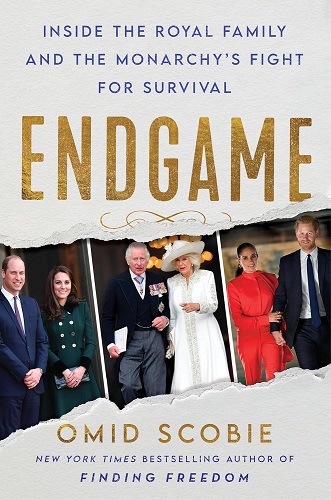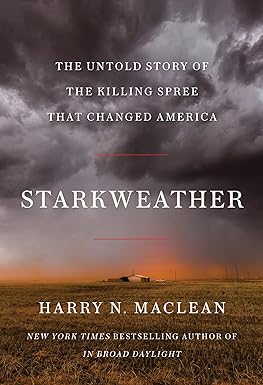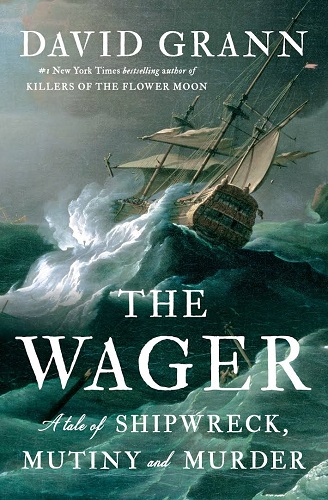Featured Non-Fiction & Biography

SAILING THE GRAVEYARD SEA
by Richard Snow
A riveting account of the only mutiny in the history of the United States Navy—a little-known event that cost three innocent young men their lives—part murder mystery, part courtroom drama, and as propulsive and dramatic as the bestselling novels of Patrick O’Brian.
On December 16, 1842, the US brig-of-war Somers dropped anchor in Brooklyn Harbor at the end of a cruise intended to teach a group of adolescents the rudiments of naval life. But this seemingly harmless exercise ended in catastrophe. Commander Alexander Slidell Mackenzie came ashore saying he had narrowly prevented a mutiny that would have left him and his officers dead. Some of the thwarted mutineers were being held under guard, but three had been hanged: Boatswain’s Mate Samuel Cromwell, Seaman Elisha Small, and Acting Midshipman Philip Spencer, whose father was the secretary of war, John Spencer.
Eighteen-year-old Philip Spencer, according to Mackenzie, had been the ringleader who encouraged the crew to seize the ship and become pirates, raping and pillaging their way across the old Spanish Main. And while the young man might have been a rebel fascinated by pirates, it soon became clear the order that condemned the three men had no legal basis. And worse, that perhaps a mutiny had never really occurred, and that the ship might instead have been seized by a creeping hysteria that ended in the sacrifice of three innocents.
Months of accusations and counteraccusations were followed by a highly public court martial which put Mackenzie on trial for his life, and a storm of anti-Navy sentiment drew the attention of the leading writers of the day (Washington Irving thought Mackenzie a hero; James Fenimore Cooper damned him with a ferocity that still stings). But some good did come out of it: public disgust with Mackenzie’s training cruise gave birth to Annapolis, the place that within a century, would produce the greatest navy the world had ever known.
Vividly told and filled with tense action based on court martial transcripts, Snow’s masterly account of this all-but-forgotten episode is naval history at its finest.

NOVEMBER 1942
by Peter Englund
An intimate history of the most important month of World War II, completely based on the diaries, letters and memoirs of the people who lived through it
At the beginning of November 1942, it looked as if the Axis powers could still win the Second World War; at the end of that month, it was obviously just a matter of time before they would lose. In between were el-Alamein, Guadalcanal, the French North Africa landings, the Japanese retreat in New Guinea and the Soviet encirclement of the German 6th Army at Stalingrad. It may have been the most important thirty days of the twentieth century. In this hugely innovative and riveting history, Peter Englund has reduced an epoch-making event to its basic component: the individual experience.
Englund’s narrative is based solely on what he learned from the writings of soldiers and ordinary citizens alike. They comprise a remarkable, deeply personal resource. In thirty memorable days, among those we meet are: a Soviet infantryman at Stalingrad; an American pilot on Guadalcanal; an Italian truck driver in the North African desert; a partisan in the Belarussian forests; a machine gunner in a British bomber; a twelve-year-old girl in Shanghai; a university student in Paris; a housewife on Long Island; a shipwrecked Chinese sailor; a prisoner in Treblinka; a Korean “comfort woman” in Mandalay; Albert Camus, Vasily Grossman and Vera Brittain—forty characters in all. In addition, we experience the construction and launching of SS James Oglethorpe, a Liberty ship built in Savannah; the fate of U-604, a German submarine; the building of the first nuclear reactor in Chicago; and the making of Casablanca.
Not since the publication of the author’s last book, The Beauty and the Sorrow, which similarly looked at the First World War, have we had such a mesmerizing work of history.


LONGSTREET
by Elizabeth R. Varon
An authoritative biography of the controversial Confederate general, who later embraced Reconstruction and became an outcast in the South.
It was the most remarkable political about-face in American history. During the Civil War, General James Longstreet fought tenaciously for the Confederacy. He was alongside Lee at Gettysburg (and counseled him not to order the ill-fated attacks on entrenched Union forces there). He won a major Confederate victory at Chickamauga and was seriously wounded during a later battle.
After the war Longstreet moved to New Orleans, where he dramatically changed course. He supported Black voting and joined the newly elected, integrated postwar government in Louisiana. When white supremacists took up arms to oust that government, Longstreet, leading the interracial state militia, did battle against former Confederates. His defiance ignited a firestorm of controversy, as white Southerners branded him a race traitor and blamed him retroactively for the South’s defeat in the Civil War.
Although he was one of the highest-ranking Confederate generals, Longstreet has never been commemorated with statues or other memorials in the South because of his postwar actions in rejecting the Lost Cause mythology and urging racial reconciliation. He is being rediscovered in the new age of racial reckoning. This is the first biography in decades and the first to give proper attention to Longstreet’s long post-Civil War career.


ENDGAME
by Omid Scobie
Endgame, the explosive book from longtime royal journalist Omid Scobie and author of the international blockbuster Finding Freedom, is a penetrating investigation into the current state of the British monarchy—an unpopular king, a power-hungry heir to the throne, a queen willing to go to dangerous lengths to preserve her image, and a prince forced to start a new life after being betrayed by his own family.
Queen Elizabeth II’s death ruptured the already-fractured foundations of the House of Windsor—and dismantled the protective shield around it. With an institution long plagued by antiquated ideas around race, class and money, the monarchy and those who prop it up are now exposed and at odds with a rapidly modernizing world. Relying on his vast experience as a royal reporter and over a decade of conversations and interviews with current and former Palace staff, trusted friends of the royals and even the family members themselves, Scobie pulls back the curtain on an institution in turmoil to show what the monarchy must change in order to survive.
This is the monarchy’s endgame. Do they have what it takes to save it?


WELCOME TO THE OC
by Alan Sepinwall
“A fascinating peek behind the making of a megahit, and a delightful bit of nostalgia for those of us who remember life before streaming TV.” —Town & Country
Welcome to the O.C., b*tch: it’s the definitive oral history of beloved TV show The O.C., from the show’s creators, featuring interviews with the cast and crew, providing a behind-the-scenes look into how the show was made, the ups and downs over its four seasons, and its legacy today.
On August 5th, 2003, Ryan Atwood found himself a long way from his home in Chino—he was in The O.C., an exclusive suburb full of beautiful girls, wealthy bullies, corrupt real-estate tycoons, and a new family helmed by his public defender, Sandy Cohen. Ryan soon warms up to his nerdy, indie band-loving new best friend Seth, and quickly falls for Marissa, the stunning girl next door who has secrets of her own. Completing the group is Summer, Seth’s dream girl and Marissa’s loyal—and fearless—best friend. Together, the friends fall in and out of love, support each other amidst family strife, and capture the hearts of audiences across the country.
Just in time for the show’s twentieth anniversary, The O.C.’s creator Josh Schwartz and executive producer Stephanie Savage are ready to dive into how the show was made, the ups and downs over its four seasons, and its legacy today. With Rolling Stone’s chief TV critic and bestselling author Alan Sepinwall conducting interviews with the key cast members, writers, and producers who were there when it all happened, Welcome to the O.C. will offer the definitive inside look at the beloved show—a nostalgic delight for audiences who watched when it aired, and a rich companion to viewers currently discovering the show while it streams on HBO Max and Hulu.
The O.C. paved the way for a new generation of iconic teen soaps, launched the careers of young stars, and even gave us the gift of Chrismukkah. Now, it’s time to go back where we started from and experience it all over again.
Includes exclusive interviews with: Ben McKenzie * Mischa Barton * Adam Brody * Rachel Bilson * Peter Gallagher * Kelly Rowan * Melinda Clarke * Tate Donovan * Chris Carmack * Autumn Reeser * Willa Holland * Samaire Armstrong * Alan Dale * Colin Hanks * Amanda Righetti * Navi Rawat * Shannon Lucio * Michael Cassidy * McG * Imogen Heap * Alex Greenwald * Ben Gibbard * Paul Scheer * Doug Liman * and many more!


STARKWEATHER
by Harry N. Maclean
The definitive story of Charles Starkweather, often considered to be the first mass killer in the modern age of America
On January 21, 1958, nineteen-year-old Charles Starkweather changed the course of crime in the United States when he murdered the parents and sister of his fourteen-year-old girlfriend (and possible accomplice), Caril Ann Fugate, in a house on the edge of Lincoln, Nebraska. They then drove to the nearby town of Bennet, where a farmer was robbed and killed. When Starkweather’s car broke down, the teenagers who stopped to help were murdered and jammed into a storm cellar. By the time the dust settled, ten innocent people were dead and the city of Lincoln was in a state of terror. Schools closed. Men with rifles perched on the roofs of their houses. The National Guard patrolled the street. If there is a cultural version of PTSD, the town suffered from it.
Starkweather and Fugate’s capture and arrest, and the resulting trials about the killing spree, received worldwide coverage. The event would serve as the inspiration for the movie Natural Born Killers and Springsteen’s iconic album Nebraska. Today, the story has dropped far from the national consciousness. With new material, new reporting, and new conclusions about the possible guilt or innocence of Fugate, the tale is ripe for an updated and definitive retelling. In Starkweather, bestselling author Harry N. MacLean tells the story of this shocking event and its lasting impact, a crime spree that struck deep into the heart of the heartland.


JACK RUBY: THE MANY FACES OF OSWALD'S ASSASISIN
by Danny Fingeroth
Jack Ruby changed history with one bold, violent action: killing accused presidential assassin Lee Harvey Oswald on live TV two days after the November 22, 1963, murder of President John F. Kennedy. But who was Jack Ruby—and how did he come to be in that spot on that day?
As we approach the sixtieth anniversaries of the murders of Kennedy and Oswald, Jack Ruby’s motives are as maddeningly ambiguous today as they were the day that he pulled the trigger.
The fascinating yet frustrating thing about Ruby is that there is evidence to paint him as at least two different people. Much of his life story points to him as bumbling, vain, violent, and neurotic; a product of the grinding poverty of Chicago’s Jewish ghetto; a man barely able to make a living or sustain a relationship with anyone besides his dogs.
By the same token, evidence exists of Jack Ruby as cagey and competent, perhaps not a mastermind, but a useful pawn of the Mob and of both the police and the FBI; someone capable of running numerous legal, illegal, and semi-legal enterprises, including smuggling arms and vehicles to both sides in the Cuban revolution; someone capable of acting as middleman in bribery schemes to have imprisoned Mob figures set free.
Cultural historian Danny Fingeroth’s research includes a new, in-depth interview with Rabbi Hillel Silverman, the legendary Dallas clergyman who visited Ruby regularly in prison and who was witness to Ruby’s descent into madness. Fingeroth also conducted interviews with Ruby family members and associates. The book’s findings will catapult you into a trip through a house of historical mirrors.
At its end, perhaps Jack Ruby’s assault on history will begin to make sense. And perhaps we will understand how Oswald’s assassin led us to the world we live in today.
Still Hot in Non-Fiction & Biography


THE WAGER
by David Grann
#1 NEW YORK TIMES BESTSELLER • From the author of Killers of the Flower Moon, a page-turning story of shipwreck, survival, and savagery, culminating in a court martial that reveals a shocking truth. The powerful narrative reveals the deeper meaning of the events on The Wager, showing that it was not only the captain and crew who ended up on trial, but the very idea of empire.
“Riveting…Reads like a thriller, tackling a multilayered history—and imperialism—with gusto.” —Time
“A tour de force of narrative nonfiction.” —The Wall Street Journal
On January 28, 1742, a ramshackle vessel of patched-together wood and cloth washed up on the coast of Brazil. Inside were thirty emaciated men, barely alive, and they had an extraordinary tale to tell. They were survivors of His Majesty’s Ship the Wager, a British vessel that had left England in 1740 on a secret mission during an imperial war with Spain. While the Wager had been chasing a Spanish treasure-filled galleon known as “the prize of all the oceans,” it had wrecked on a desolate island off the coast of Patagonia. The men, after being marooned for months and facing starvation, built the flimsy craft and sailed for more than a hundred days, traversing nearly 3,000 miles of storm-wracked seas. They were greeted as heroes.
But then … six months later, another, even more decrepit craft landed on the coast of Chile. This boat contained just three castaways, and they told a very different story. The thirty sailors who landed in Brazil were not heroes – they were mutineers. The first group responded with countercharges of their own, of a tyrannical and murderous senior officer and his henchmen. It became clear that while stranded on the island the crew had fallen into anarchy, with warring factions fighting for dominion over the barren wilderness. As accusations of treachery and murder flew, the Admiralty convened a court martial to determine who was telling the truth. The stakes were life-and-death—for whomever the court found guilty could hang.
The Wager is a grand tale of human behavior at the extremes told by one of our greatest nonfiction writers. Grann’s recreation of the hidden world on a British warship rivals the work of Patrick O’Brian, his portrayal of the castaways’ desperate straits stands up to the classics of survival writing such as The Endurance, and his account of the court martial has the savvy of a Scott Turow thriller. As always with Grann’s work, the incredible twists of the narrative hold the reader spellbound.


BEING HENRY
by Henry Winkler
Instant New York Times Bestseller!
From Emmy-award winning actor, author, comedian, producer, and director Henry Winkler, a deeply thoughtful memoir of the lifelong effects of stardom and the struggle to become whole.
Henry Winkler, launched into prominence as “The Fonz” in the beloved Happy Days, has transcended the role that made him who he is. Brilliant, funny, and widely-regarded as the nicest man in Hollywood (though he would be the first to tell you that it’s simply not the case, he’s really just grateful to be here), Henry shares in this achingly vulnerable memoir the disheartening truth of his childhood, the difficulties of a life with severe dyslexia, the pressures of a role that takes on a life of its own, and the path forward once your wildest dream seems behind you.
Since the glorious era of Happy Days fame, Henry has endeared himself to a new generation with roles in such adored shows as Arrested Development, Parks and Recreation, and Barry, where he’s been revealed as an actor with immense depth and pathos, a departure from the period of his life when he was so distinctly typecast as The Fonz, he could hardly find work.
Filled with profound heart, charm, and self-deprecating humor, Being Henry is a memoir about so much more than a life in Hollywood and the curse of stardom. It is a meaningful testament to the power of sharing truth and kindness and of finding fulfillment within yourself.


GOING INFINITE
by Michael Lewis
AN INSTANT #1 NEW YORK TIMES BESTSELLER
“A stupefyingly pleasurable book to read.” ―Gideon Lewis-Kraus, The New Yorker
“Going Infinite is an instant classic.” ― Helen Lewis, The Atlantic
“The sort of skillfully told story we’ve come to expect from Mr. Lewis.” ―Barton Swaim, The Wall Street Journal
“A wry, engaging writer and a gifted storyteller.” ―Julia M. Klein, Los Angeles Times
“It may be easy to take for granted how entertainingly [Michael Lewis] pulls it off again in Going Infinite.” ―Brett Martin, GQ
“Lewis’s storytelling is as good as ever.” ―The Economist
“Going Infinite is wildly entertaining, surprising multiple times on pretty much every page, but it adds up to a sad story, even a tragedy, for its central character and for all the people who lost so much thanks to his actions.” ―John Lanchester, London Review of Books
From the best-selling author of The Big Short and Flash Boys, the story of FTX’s spectacular collapse and the enigmatic founder at its center.
When Michael Lewis first met him, Sam Bankman-Fried was the world’s youngest billionaire and crypto’s Gatsby. CEOs, celebrities, and leaders of small countries all vied for his time and cash after he catapulted, practically overnight, onto the Forbes billionaire list. Who was this rumpled guy in cargo shorts and limp white socks, whose eyes twitched across Zoom meetings as he played video games on the side?
In Going Infinite Lewis sets out to answer this question, taking readers into the mind of Bankman-Fried, whose rise and fall offers an education in high-frequency trading, cryptocurrencies, philanthropy, bankruptcy, and the justice system. Both psychological portrait and financial roller-coaster ride, Going Infinite is Michael Lewis at the top of his game, tracing the mind-bending trajectory of a character who never liked the rules and was allowed to live by his own―until it all came undone.


